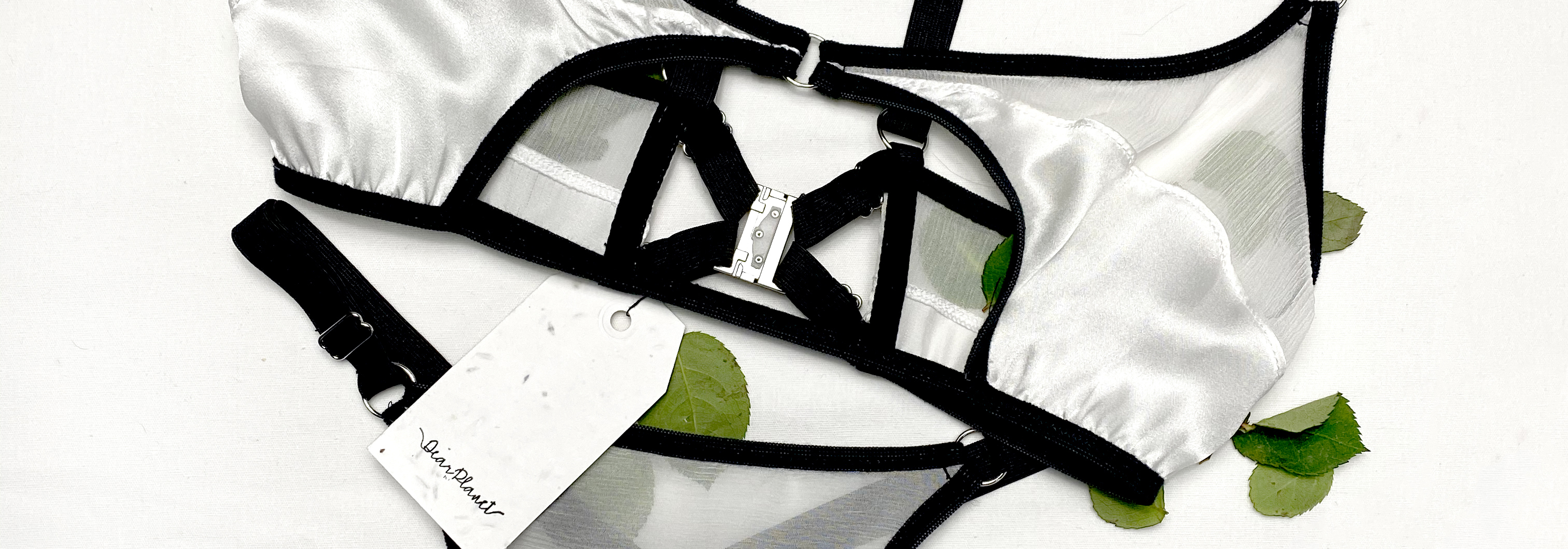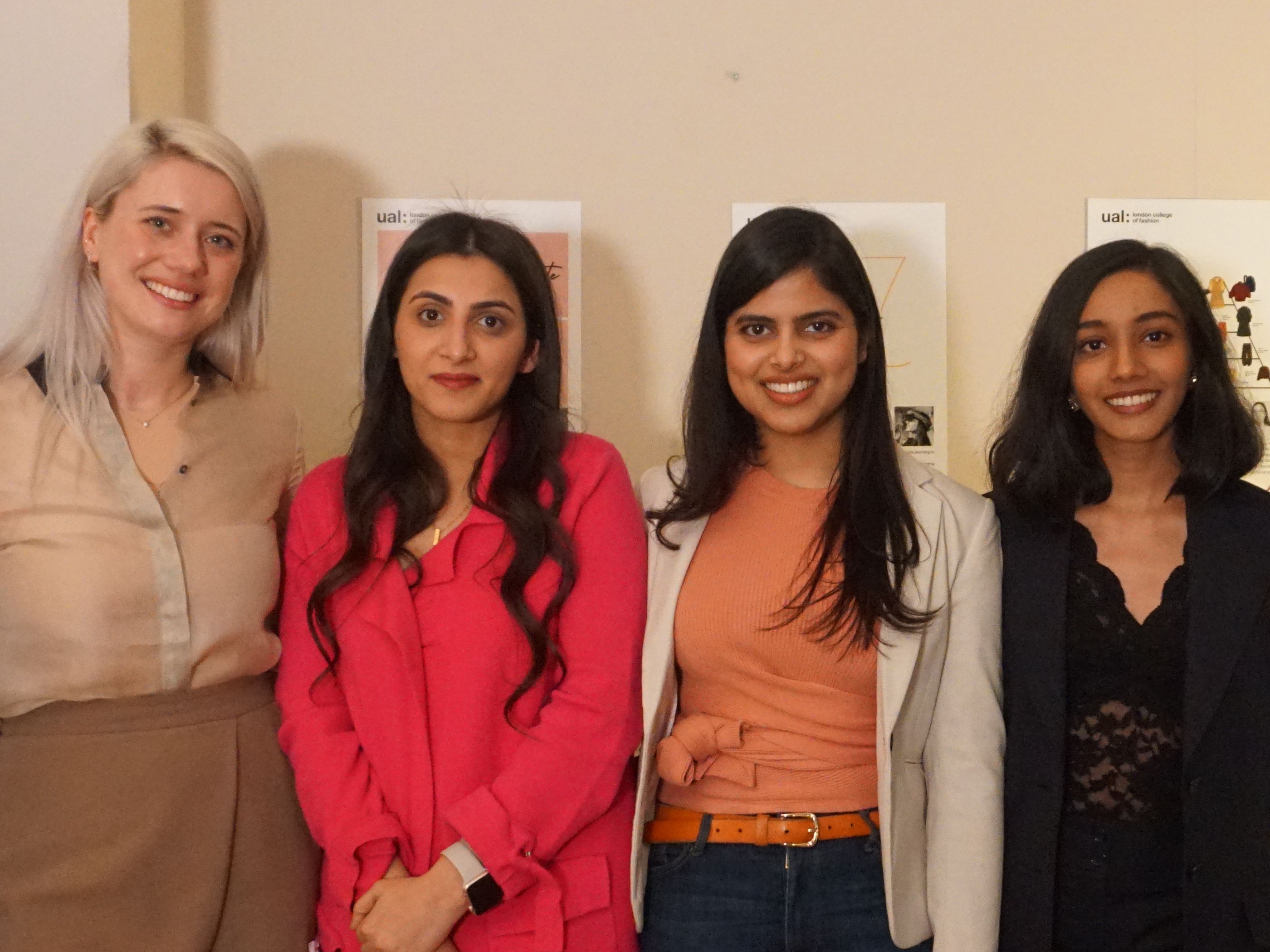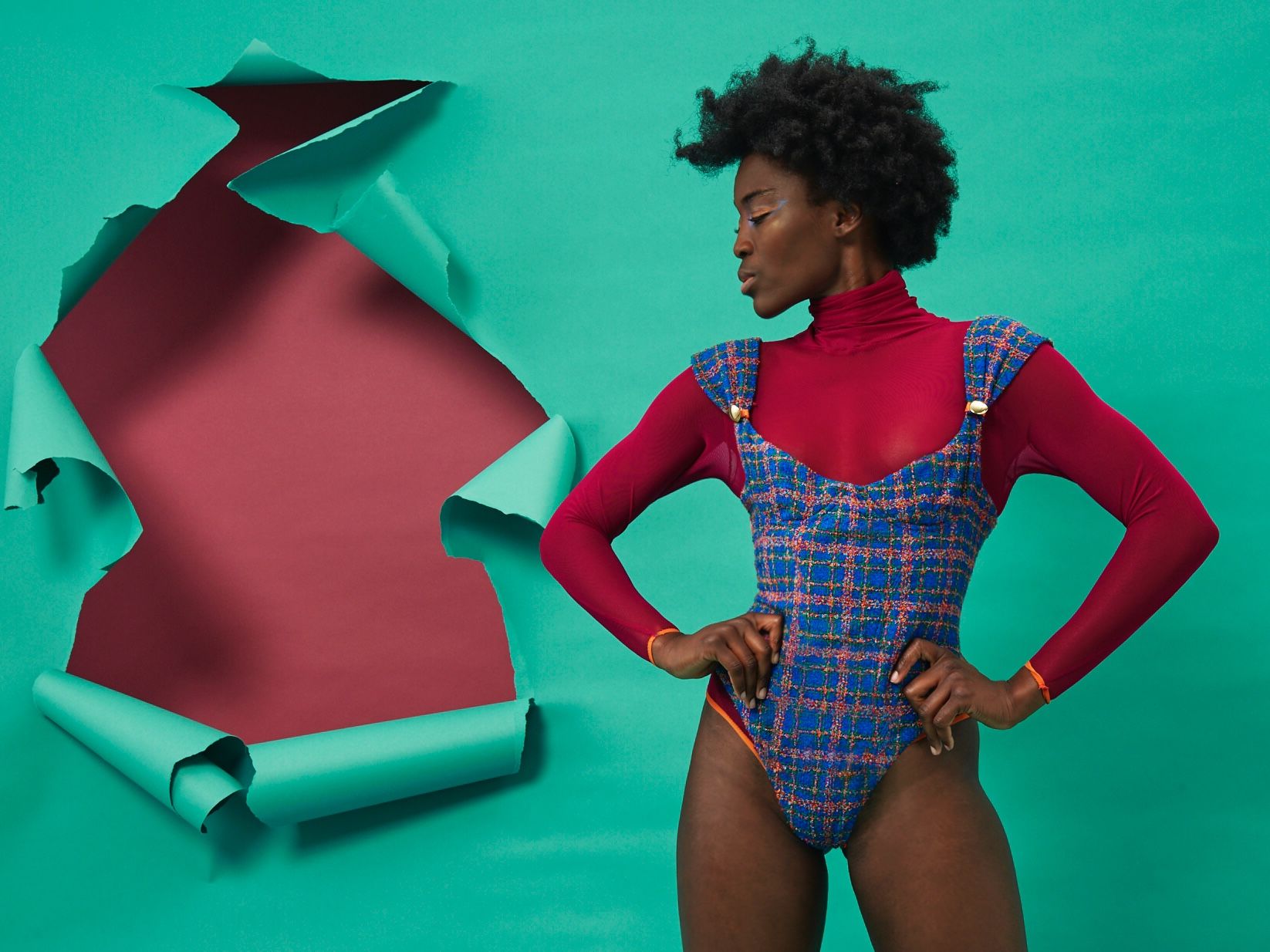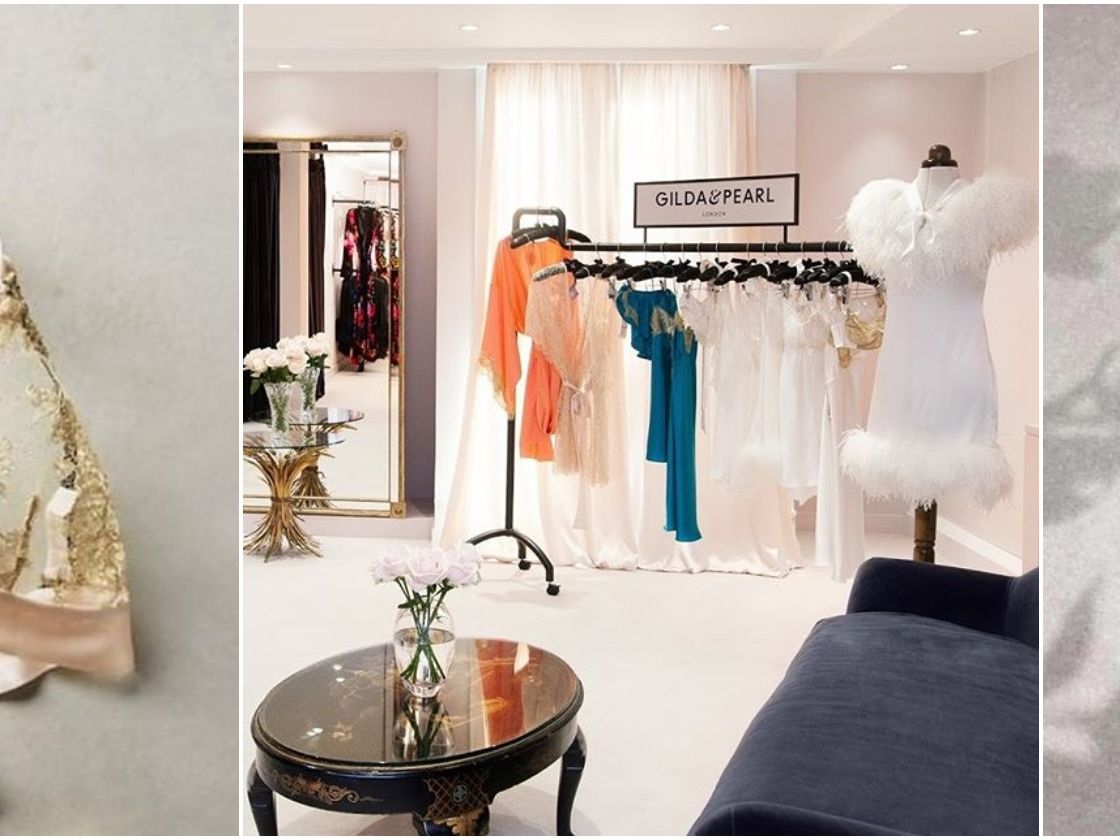Following her entrepreneurial mindset and her love for our planet, BA (Hons) Fashion Contour student Lauren Finn has developed Dear Planet Intimates, a sustainable range of lingerie that not only is eco-friendly but also wants to raise awareness around the use of plastics in underwear. Her business idea won the third place at the Enterprise Challenge 2020 and she’s now fully embarked in the process of creating the first prototype. We recently chatted with Lauren about her experience at LCF and the challenges of being a fashion entrepreneur fighting for a more sustainable future.

Hi Lauren! Tell us a bit more about your creative journey. What brought you to LCF?
I’m originally from Hertfordshire and when I was at school I really loved art and fashion. I did a foundation course at Ravensbourne and that's when I realised I didn’t really enjoy doing womenswear or menswear design, I was more attracted to lingerie. I did some research on different universities that had degrees in lingerie design and that’s when I found the BA Fashion Contour course at LCF.
How has it been so far?
My first year here was really good — I wasn’t that great at sewing, my skills weren’t really up to scratch, but the teachers were really helpful and on my second year I felt much more confident. I've decided to go for the 4 year course which would normally involve doing a full-year internship, but instead I’ve joined the new internal programme developed by LCF Graduate Futures where we'll be working on developing our own business idea.
What have you been exploring during this year?
We’ve been studying different business models, hearing from different entrepreneurs who come and talk to us about their experiences. Basically, the aim of this programme is to learn how to validate a business idea. A lot of entrepreneurs jump forward and create a product hoping it will sell, but there are a lot of things to consider before going straight into business.
For me, my idea was to create a lingerie brand with a product that was 100% compostable, but after doing my research I realised that it's not achievable. I will have to work with some materials that are not compostable, but still 90% percent of my new range will be biodegradable. I’m now focusing on the product development phase, contacting different suppliers to see what materials out there at the moment, and it’s been really good fun!
I wanted to write a love story to our planet and that’s how I came up with the name of my brand — Dear Planet
As consumers, sustainable lingerie is not something we hear a lot about. What are the main issues with underwear from a sustainability point of view?
That’s one of the problems that I want to solve with my brand, I want to make people more aware of the unsustainable side of lingerie. For someone who wants to be more conscious about their clothes and live a sustainable lifestyle, buying second-hand bras or knickers is obviously not a very hygienic option, but the real issue with lingerie is that very single piece that we buy has plastic in it.

Why is sustainability important for you as a lingerie designer?
As you know, there have been a lot of conversations in the media about living a more sustainable life and what we can do individually to look after our planet.
For me, the way to fix the planet is by using the planet. People forget how amazing the world is and the natural resources we have available. We don’t need to add plastic to everything, we really have to stop and look at what the Earth has to offer to us.
For Dear Planet I will be adopting sustainable practices throughout the design and manufacturing process, but my goal is really to make the end result as eco-friendly as possible.
How has the been the response from your colleagues and friends when you’ve told them about your project?
The brand is still really young, I’m trying to grow its following mainly on Instagram, but I’ve already had a lot of positive responses mainly from young people, which is really good as my target audience is 18-30 years old. It’s funny because when I tell people that I’m working on a compostable range of lingerie they think the bra would decompose while you’re wearing it — it won’t! Think about a cotton t-shirt, if it doesn’t contain any plastic, it will only decompose once it’s gone to landfill.
What are the next steps for your brand?
Once I have the first prototype I want to take it to vegan markets and get some feedback. One thing that will be very important in my brand is that it will be driven by the consumer and I want to give them what they really want.
I think one of the main reasons why some many clothes end up in landfill is because we’re not asking the consumers, they’re not feeling part of the process. I want to create a sense of community around Dear Planet where everyone feels like they have a say.
This is truly inspiring seeing young designers like you coming up with all these brilliant ideas. Do you feel like being at LCF has inspired you to be a more conscious designer?
Definitely! Since I was young I knew I wanted to have my own business and I had lots of different ideas, but being here at LCF attending different lectures focused on sustainable practices has made me even more aware of the power I have as a designer to make a positive impact and give back to the planet. We even have a full module in Fashion Contour dedicated to sustainability and technology. So definitely being in this environment, surrounded by so many people who are working towards the same goal and care about the planet as much as I do, has helped me to think about my designs in a more sustainable way.
- Follow Dear Planet Intimates on Instagram and read more about Lauren's project
- Find out more about BA (Hons) Fashion Contour
- Explore LCF undergraduate courses
- What’s on at LCF: open days and events




